SKOWHEGAN — Letters have been sent to the state commissioner of education and to members of the state Board of Education, to the Skowhegan-based School Administrative District 54 school board and to the Maine Press Association.
The letters say the same thing: Please stop using the word “Indians” when referring to Skowhegan Area High School sports teams.
On June 16, a complaint was filed with the Maine Human Rights Commission by Maulian Smith, of the Penobscot tribe, claiming discrimination by the school board and the superintendent during a public meeting on the issue.
The controversial question may have reached its apex in public last month when the school board voted to keep the Indians name — the last high school in the state to have imagery that Maine’s Indians have asked to be removed — but behind the scenes the struggle is continuing as opponents of the mascot name seek different ways of pushing for change.
Doctors, lawyers, educators and business leaders have called on the school district to drop the name because it is offensive to the very people it is meant to honor — Maine Indian tribes.
Others in the community, including many members of the SAD 54 board, are holding fast to their belief that keeping the Indians mascot name is their heritage and what they say is their way of channeling the power and strength of the people who first settled on the banks of the Kennebec River, which runs through Skowhegan.
Neither side is budging in the debate that in the last year has turned ugly with charges of racism, insults and intimidation.
“As long as they continue, I will continue,” said Harold Bigelow, of Skowhegan, a vocal supporter of keeping the name who was elected to the school board June 9. “As long as they continue — that’s not a problem — that’s why I joined the school board.”
Bigelow said the school board vote in May to keep the name should be the final word on the matter.
“I think the town spoke and the vote was fair and I think it surprised a lot of people, but I had faith in it,” Bigelow said. “I believe that there is nothing they won’t try. I think that they have enough problems on the reservation and in their own lives. Why are they pursuing this? It’s not an issue as far as I’m concerned.”
American Indians in Maine, not all of whom live on a reservation, see it differently. So do many non-Indians who support them.
Members of Maine’s tribes say use of the name and related images are an insult to their heritage and an affront to the history of the region where tribal members were slaughtered and forced to move from their ancestral home so white Europeans could settle the land and enjoy the abundance it offered.
“While we understand that well-meaning folks truly believe they are honoring our people with these images, we do not feel honored and want their use to be discontinued,” Kirk Francis, chief of the Penobscot tribe, wrote in a letter to the SAD 54 school board.
Francis said “sports team mascots and other imagery … are offensive to and objectify Native people.”
In an 11-9 vote in May, the school board decided to keep the Skowhegan Indians mascot after public forums with the four tribes of the Wabanaki confederation and residents who support and oppose changing the name.
The rallying cry from Indians has been: “We are people. We are still here. We are not mascots.”
CIVIL RIGHTS ISSUE
Smith, who grew up and still lives and works on Indian Island in Penobscot County, has opened a Facebook page Notyourmascot Maine Chapter that displays postings from support groups including Christians Against Native Mascotry, ThinkProgress.org and EveryDayFeminism.com.
“Our mission is to assist in the quest to remove Indian mascots through outreach and education,” Smith said recently. “Our immediate concern in Maine is the last high school with an Indian mascot, Skowhegan. Kindness and humanity will get us far. I am networking and reaching out to many different state and national organizations to help get the Skowhegan Indians mascot changed, and the site has been an excellent tool.”
Smith also filed the complaint with the Maine Human Rights Commission, saying she was physically removed from the lectern at a public meeting that allowed only residents of the school district and state representatives of the Indian tribes to speak.
“I was discriminated against by the school district in the discussions to remove the Skowhegan Indians mascot,” Smith wrote to the rights commission. “I was treated unfairly and not given equal rights because of the color of my skin and my race, American Indian. This is a bigger issue than me. The children of the school are not getting a quality education because of the discriminatory nature of the majority of the school board members.”
SAD 54, Skowhegan Area High School and district Superintendent Brent Colbry are named in the complaint.
The commission received the complaint and will review it.
Smith, whose father, Barry Dana of Solon, is a former chief of the Penobscots, said she got a return letter from Thomas Desjardin, acting commissioner of the Maine Department of Education, saying it is not the department’s place or the purview of the state Board of Education to take action on what is a local matter.
Smith said the state of Oregon took the opposite view when the state Board of Education ordered that public schools that have fought to maintain their Indian-themed mascots in the face of state changes must pick new names by 2017.
She said she hopes her complaint to the Maine Civil Rights Commission will draw attention to the matter not just in Maine but nationwide as a problem for all people, especially school children. She said a report by the American Psychological Association has shown that the continued use of American Indian mascots, symbols, images and personalities has a negative effect on not only American Indian students but all students.
“The focus there is to make it a civil rights issue in Maine,” Smith said. “Thinking about the students in that district and the quality of their education.”
Smith also drew a connection between the use of the Indians name and the controversy over displays of the Confederate battle flag, which she said is a “symbol of racism, historical trauma and modern day hatred.” While the flag controversy has been going on for decades, it reached the mainstream after nine members of a church in South Carolina were shot and killed June 17. The shooter used the flag imagery in social media posts.
“‘Indian mascots are symbols of all of the same things,” she said. “The way that people stand by the Confederate flag out of ignorance and a flimsy sense of tradition is no different from the ‘Keep Skowhegan the Indians’ supporters. I am encouraged that the flag is losing its ground in America, and I know that all Indian mascots will eventually follow.”
THE BOARD LEVEL
Newly elected school board member Lynda Quinn, of Skowhegan, was a vocal supporter of keeping the Indians name during public hearings leading up to the vote in May. She was not yet on the board at the time, but was public in her stance. She said the community fears losing its identity if the name is lost and fears being called racist when they are not.
“Fear begets hate, and hate thrives in political correctness,” she said.
Quinn said the issue of the mascot name will resurface sooner or later and could end up being decided by the state.
“I think it’s over for now,” she said. “Do I think it’s gone away forever? I do not. I think it will come back around. I think it will become a federal issue, and then I don’t think we’ll have any choice.”
School board member Jane Arthur, who was re-elected this month, was a vocal supporter of dropping the nickname.
“Speaking for myself, if other teams boycott playing our sports teams because of the Indians name, it may force the board to reconsider because it could jeopardize our athletes from getting scholarships in that arena,” Arthur said. “I think it’s a possibility. The other concern I have that might bring this back sooner is litigation. That could cost us and could hurt our school district budget and might also force the board to reconsider the issue sooner.”
The new chairman of the school board, Tim Downing, of Smithfield, voted to remove the Indians name as a sports team mascot. The newly elected vice chairman is Dixie Ring, of Canaan, who voted to keep the name.
School board member Jennifer Poirier, of Skowhegan, who voted to keep the name, has taken over the administration of the “Keep Skowhegan the Indians” Facebook page. Poirier said the board listened to the concerns of both sides and brought closure to the issue.
“As far as the Facebook group, I had witnessed so much negativity from both sides that I felt the need to foster a positive environment for people to share their school and community pride without being called racist,” she said.
The originator of the Facebook page, 17-year-old Zachary Queenan, changed his mind and gave up the page after one of the public meetings, saying he saw the pain felt by Maine’s Indians and their supporters and he had an epiphany.
Superintendent Brent Colbry said the school board has not discussed the matter since the vote to keep the Indian mascot.
“There’s been no conversation at the board level,” he said. “I think I can safely say that the board has no intention of bringing it up in the near term. I’ve not heard any direction of the board to have a conversation on the topic in the near future.”
MEDIA OUTREACH
Ed Rice, an author and adjunct instructor at the New England School of Communications and Husson University, sent a letter in May to members of the Maine Press Association asking newspapers and broadcasters across the state to stop using the nickname Indians when covering Skowhegan sports. Rice was behind the renewed effort in Skowhegan and has pushed for removal of similar Indian imagery at other schools in the state.
The press association said it was beyond the scope of its mission to take a stance on the issue, but would include Rice’s comments in a future newsletter for member media outlets.
“As the author of ‘Baseball’s First Indian,’ I’ve fought for years to see the Cleveland nickname and mascot ‘Chief Wahoo’ dropped because these do not honor Penobscot tribesman Louis Sockalexis,” Rice wrote to the press association. “I’ve been involved, since the symposium I helped to create in 2010 with the Maine Indian Tribal State Commission, to help eradicate these nicknames and mascots in my home state.”
Rice said the decision by some media outlets to stop using the name “Redskins” when referring to the National Football League team from Washington, D.C., is a good start. Now, he said, he wants Maine media to stop using Indians as well.
Scott Monroe, managing editor of the Morning Sentinel and the Kennebec Journal, said the newspapers are “aware of the request” regarding the Indians name “and will certainly take it into careful consideration.”
The newspapers “do not have any official policy regarding use of the name ‘Redskins,’ but we did decide last year to avoid use of the name whenever possible in stories that refer to the Washington NFL team. Our thinking is that particular name is no different from any number of other ethnic slurs that are unsuitable for publication.”
It’s been a year since scrutiny, spurred by Rice, was rekindled on use of Indian imagery and names for sports mascots at Maine high schools.
Since that story published by the Morning Sentinel in May 2014, the focus has shifted to the last high school in the state to consider dropping Indian mascots — Skowhegan Area High School.
There have been published reports of meetings, blog and social media entries, television reports and a statement from the Bangor office of the National Association for the Advancement of Colored People.
Michael Alpert, president of the Greater Bangor Area NAACP, said in February that his organization is dedicated to “universal civil rights and to the eradication of all forms of racism” — including use of the Indian mascot, which he called a symbol of racism. He said continued use of the Indian mascot degrade the community.
Alpert recently reaffirmed the Bangor chapter’s intentions, saying that his group supports the tribes and is disappointed in the SAD 54 school board vote.
“We would like to work with the tribes and the school board and the Skowhegan community to find a better resolution,” Alpert said. “I feel that it’s mistaken to have that kind of emblem for a school.”
Alpert noted that Skowhegan is near the site of one of the worst massacres of tribal people at Old Point, in what is now Madison, in 1724.
“That needs to be remembered,” he said.
Doug Harlow — 612-2367
Twitter: @Doug_Harlow
Send questions/comments to the editors.


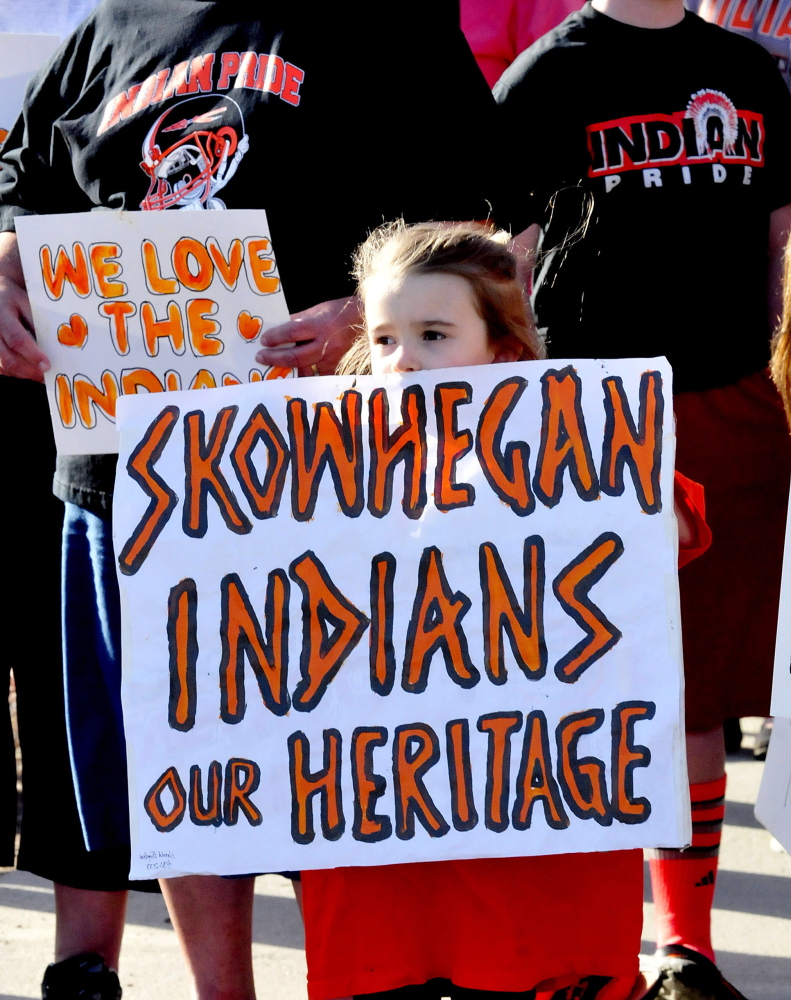
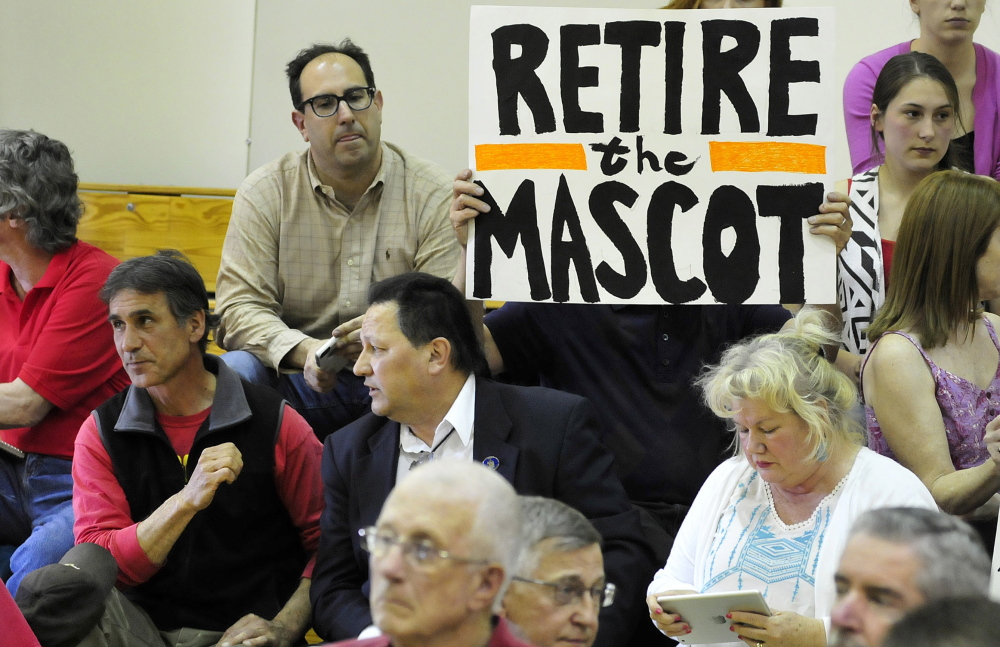
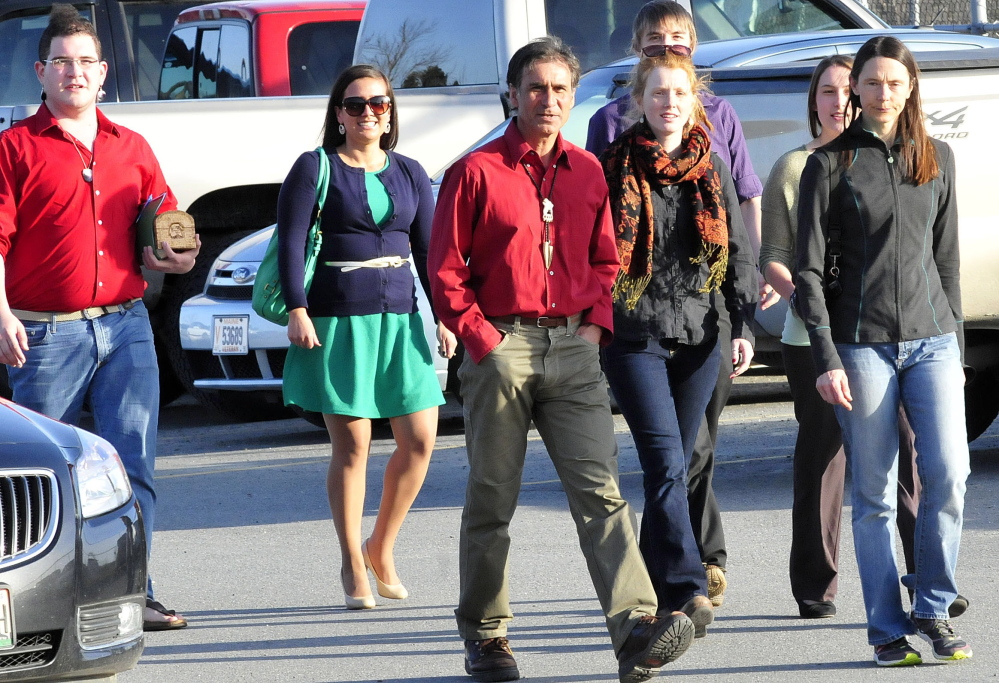
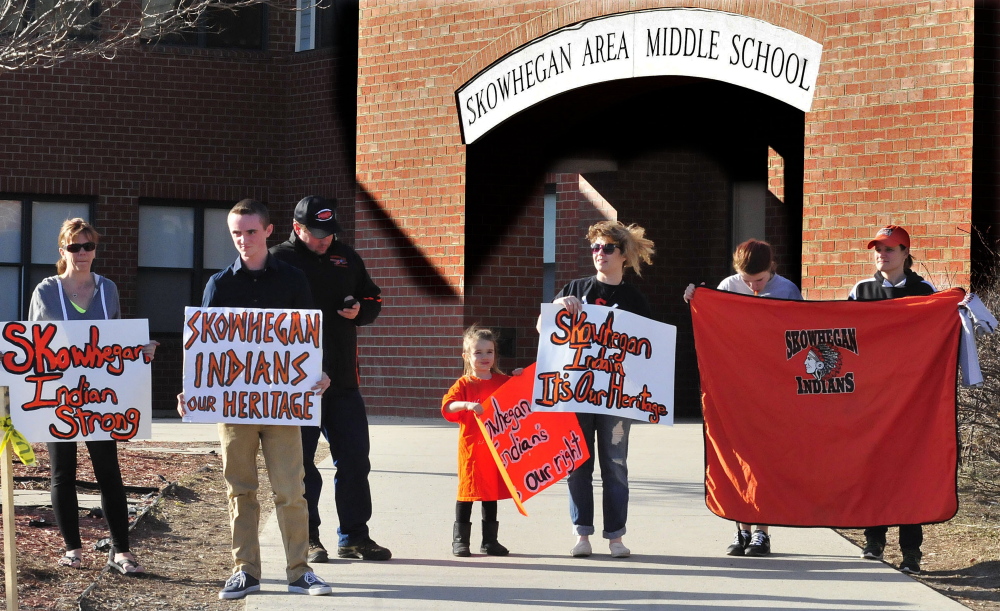
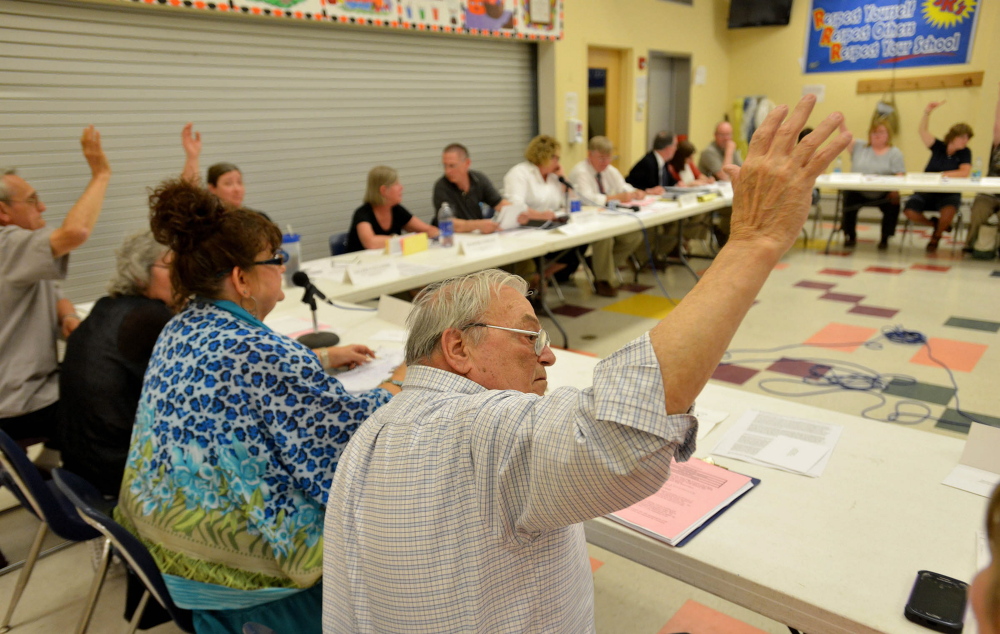
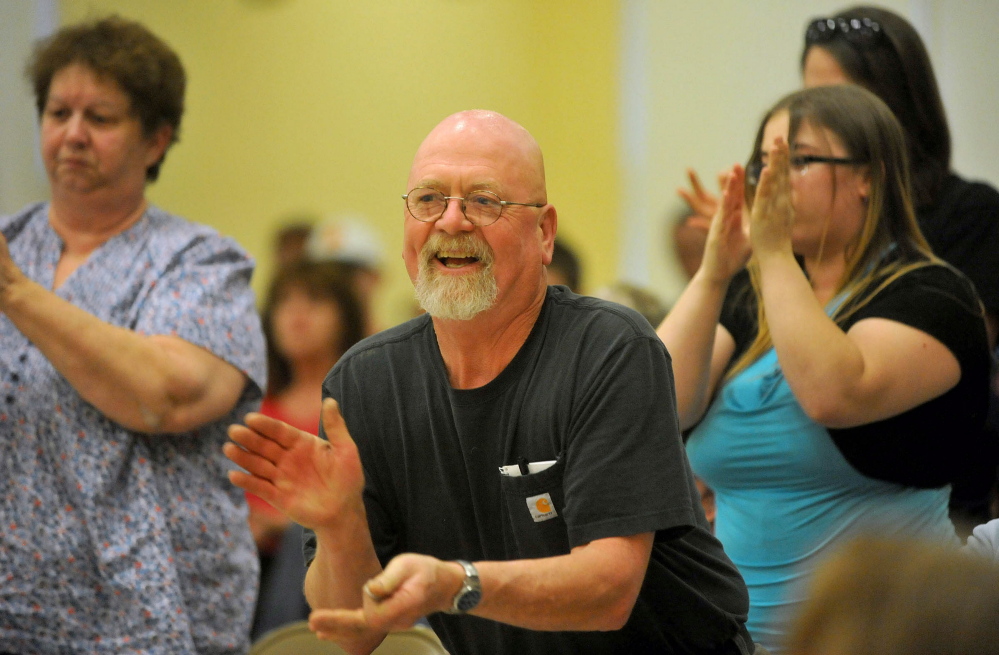
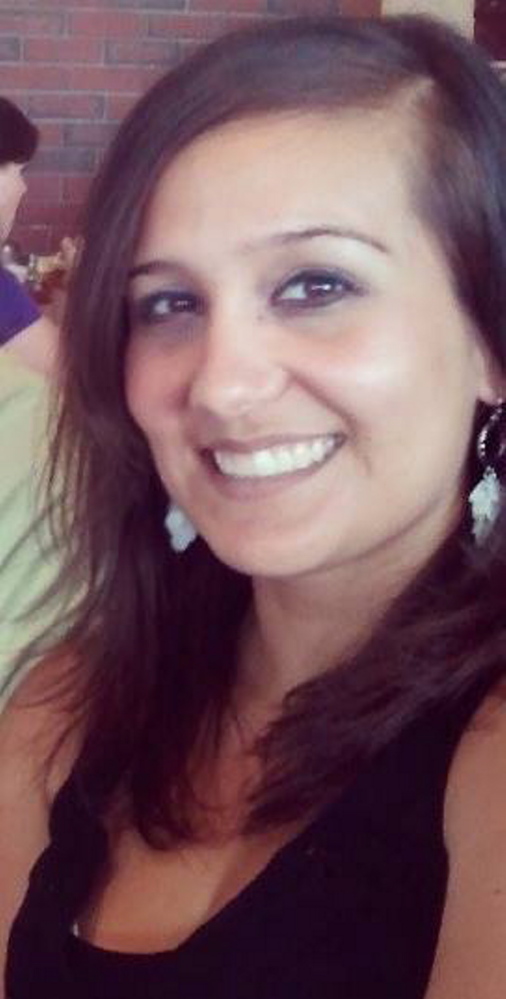

Success. Please wait for the page to reload. If the page does not reload within 5 seconds, please refresh the page.
Enter your email and password to access comments.
Hi, to comment on stories you must . This profile is in addition to your subscription and website login.
Already have a commenting profile? .
Invalid username/password.
Please check your email to confirm and complete your registration.
Only subscribers are eligible to post comments. Please subscribe or login first for digital access. Here’s why.
Use the form below to reset your password. When you've submitted your account email, we will send an email with a reset code.